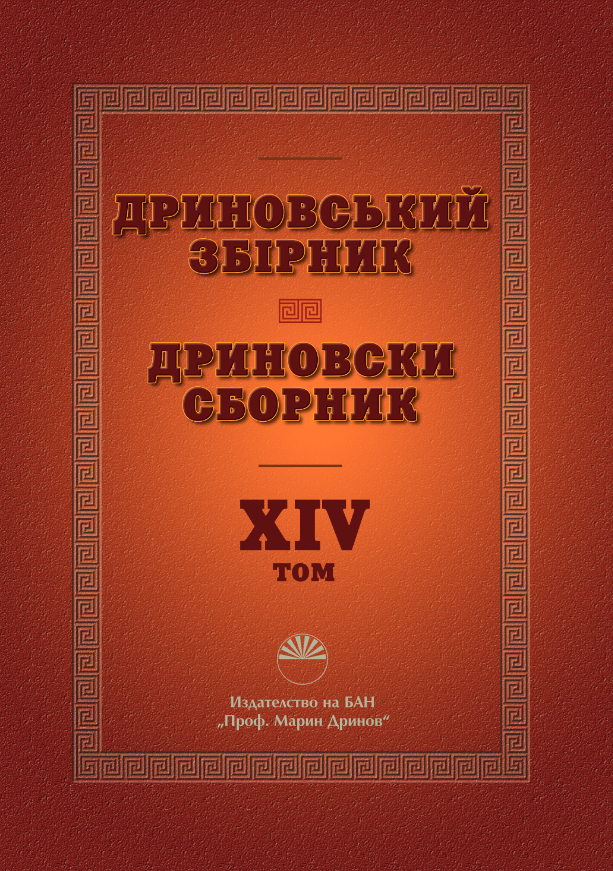Проєкти спільних центральноєвропейських інфраструктурних мереж держав Четверного союзу в оцінках публіциста Георгія Капчева
Анотація
Метою представленої роботи є вивчення викладених в опублікованій у 1916 році в Росії брошурі оцінок відомого болгарського журналіста, публіциста і громадського діяча Георгія Капчева інфраструктурних проєктів, запропонованих під час Першої світової війни німецькими і австро-угорськими спеціалістами. Нарис під назвою «Сучасна Болгарія та її долі» є цілком типовим для російського громадсько-політичного дискурсу воєнних років. Авторські судження щодо німецько-австро-угорських задумів побудови спільних центральноєвропейських інфраструктурних мереж були зумовлені політичною кон’юнктурою епохи та уподобаннями самого журналіста.
На той час фритредерство, як концепція зовнішньої торговельної політики та стимулювання розвитку економіки, переживало глибоку кризу, відносини між ворогуючими таборами залишалися сповненими взаємної недовіри, а пропаганда воюючих між собою імперій використовувала будь-яку можливість, кожен інформаційний привід з метою дискредитації противника. Саме тому будівництво залізничних доріг, мостів, тунелів і водних каналів, що у довгостроковій перспективі могло б позитивно вплинути на розвиток економіки Центрально-Східної Європи, а також посприяти модернізації регіону, визначається Георгієм Капчевим як німецький і австро-угорський спосіб експансії та спроба втілення у життя концепції пангерманізму.
Автор апелює до емоцій, релігійних переконань, колективної пам’яті читачів, нагадуючи про вдячність, яку народ Болгарії мав відчувати по відношенню до Росії за звільнення у результаті війни 1877–1878 років від османського гноблення. Він повторює тезу про природну симпатію болгар до росіян та небажання воювати з нащадками визволителів їхньої країни. Незважаючи на свою тенденційність, нарис Георгія Капчева дав змогу російській громадськості ознайомитися з актуальною і доволі детальною інформацією про сутність ініційованих Німеччиною і Австро-Угорщиною інфраструктурних проєктів, сформувати уявлення про місце у цих планах Південно-Східної Європи, зокрема, Болгарії. Проте, надто емоційний виклад матеріалу, та ще й у відверто пропагандистському контексті, безсумнівно заважає читачеві зрозуміти вигоди і перспективи, що розкривалися перед значним за розмірами регіоном Європи за умови реалізації задумів Берліна і Відня.
Завантаження
Посилання
Kostov, E. 1999. Transportnata problematika i institutut na konstitutsionnata ministerska nakazatelna otgovornost v Bulgariya (1895–1923 g.). Sofiya: V. Nedkov. 220 s. (In Bulgarian).
Mykolenko, D. 2017. Uriadova polityka shchodo rozvytku infrastruktury Bolharii (1903–1908 rr.). Siverianskyi litopys. Vseukrainskyi naukovyi zhurnal. № 5 (137). S. 92–97. (In Ukrainian).
Mykolenko, D. 2017 a. Strasti za Stambolovym: bolharske derzhavotvorennia u 1895–1920 rokakh. Kharkiv: KhNU imeni V. N. Karazina. 804 s. (In Ukrainian).
Kapchev, G. І. 1916. Sovremennaya Bolgarіya i eyе sudby. Petrograd: T-vo V. A. Berezovskіy. Komissіoner voyenno-uchebnykh zavedenіy. 76 s. (In Russian).
Kapchev, G. І. 1909. Priznatelynaya Bolgaria. Petrograd: Tip. Ministerstva Vnutrennikh Del. 528 s. (In Russian).
Kapchev, G. І. 1916 a. Sovremennaya Rumynia i ee natsionalynыe zadachi. Petrograd: T-vo V. A. Berezovskіy. Komissіoner voenno-uchebnуkh zavedenіy. 60 s. (In Russian).
Kapchev, G. І. 1917. Turetskoe «nasledstvo» i mirovaya voyna. Petrograd – Stokgolym: Tip. Progress. 114 s. (In Russian).
Osykin, M. V. 2015. Prodovolystvennoe snabzhenie Rumynskogo fronta zimoy 1916/1917 g.: trudnoe vzaimodeystvie soyuznikov po Antante. Pervaya mirovaya voyna i sudyby narodov Tsentralynoy i Yugo-Vostochnoy Evropy: ocherki istorii. Moskva. S. 207–229. (In Russian).
Tanchev, Iv. 2001. Makedonskiyat komponent pri formiraneto na bulgarska inteligentsia s evropeysko obrazovanie (1878–1912). Makedonski pregled. XXIV (3). C. 41–62. (In Bulgarian).
Bilyarski, Ts. 2002. Knyazhestvo Bulgaria i makedonskiyat vopros. Protokoli ot kongresite na Vurkhovnia makedono-odrinski komitet. 1895–1905. Sofia: Ivray. 399 s. (In Bulgarian).
Eldarov, S. 2003. Varkhovniyat Makedono-Odrinski komitet i Makedono-Odrinskata organizatsia v Bulgaria. 1895–1903. Sofia: Ivray, 2003. 342 s. (In Bulgarian).

